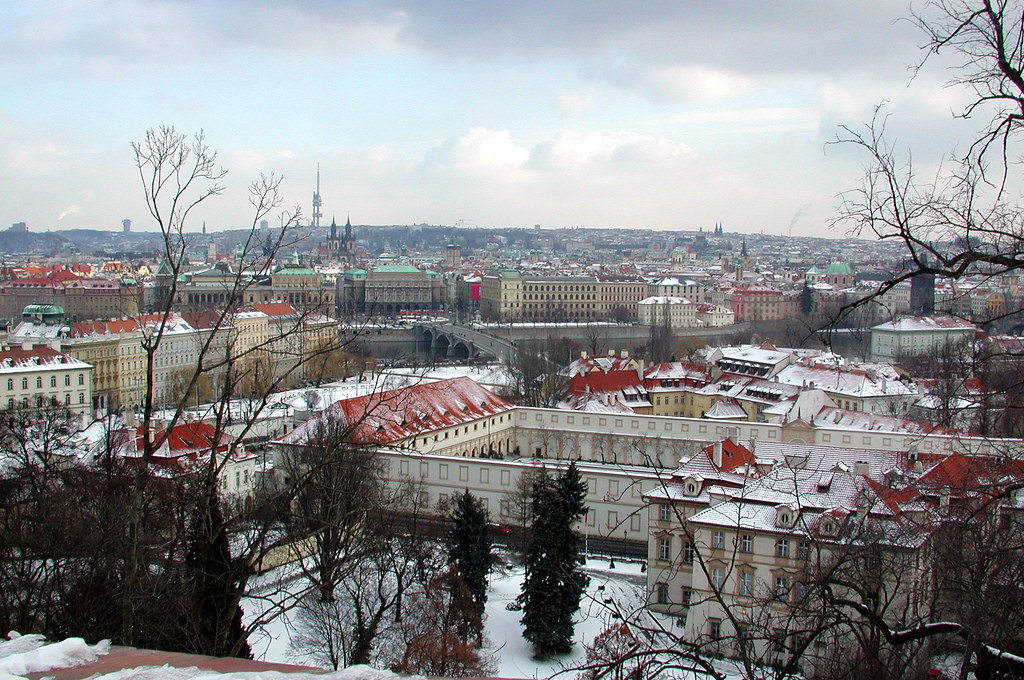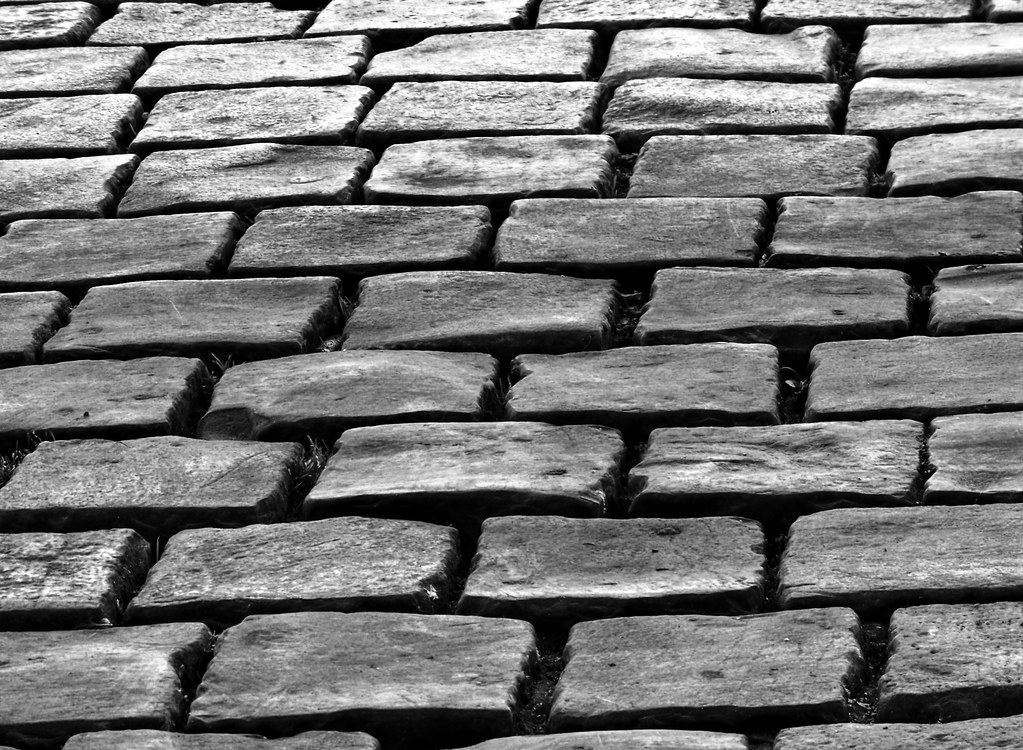 |
| Paul Deblinger |
By Paul Deblinger
Our
guest today is Paul Deblinger. He is an American writer who, in
addition to poetry, also creates comedy and encaustic paintings. He
has lived in the Czech Republic and has traveled widely in Europe.
One of
the first things I learned on my adventure in Prague is that the word
"ano" means yes. You have to listen very carefully--even
though Czechs accent the first syllable, it still sounds like "no."
At first
I wondered why everyone was so negative--I heard “no,” after “no”
as the answer to the most obvious questions. Then, I learned what
“ano“ meant. I had to listen carefully. This influenced my
writing, my thinking and my daily life as an ex-pat. Listen, listen,
think!
I
arrived in Prague in June 2003, to take part in a four-week creative
writing program sponsored by Western Michigan University. I was
51...and was one year removed from a minor heart attack that left me
with severe anxiety...so much so...that after one year I could
basically leave my home only for work. Panic attacks in grocery
stores, farmers' markets, restaurants, had driven me back home.
Then I
found myself scanning writer's web pages and ran across an ad for the
Prague program. To make a long story short....somehow though the fog
of anxiety I signed up for the Prague program, quit my job, and
packed for a four-week stint away from my couch and my home.
 |
| Prague Castle. Photo by DC Pelka |
Arriving
in Prague, a city I had visited once before in 1991, I was assigned a
room in a rather official-looking building (turns out it was Gestapo
headquarters during WWII) that was now a dormitory for foreign
students. It was a warren-like building with long halls that made you
want to drop breadcrumbs to find your way back to your room. I often
felt myself wandering in endless circles, passing the same door many
times. Like my new-found expertise in listening, I needed to force
myself to remember the most mundane details.
I was up
early the first morning in Prague. I had arrived on a Friday and
classes didn't start until Monday. In the early morning light, Prague
looked handsome and inviting. As a hilly, river city Prague has
unusual, wonderful urban light, light that has been twisted and
turned down narrow streets for a thousand years, has bounced off
facades of almost every imaginable type of architecture rolling
across the many green parts of the city.
After
just a few blocks I noticed something about my body: I could breathe.
After my heart attack each breath seemed labored as if it was a
signal for bad things to come. The mysterious weight of anxiety had
removed itself from my chest and I felt as light and free as...well,
I couldn't even remember.
 |
| Prague Jewish Quarter. Photo by Beth Green |
I
continued my walk through Prague, crossing the Vltava River, entering
Josefov, the old Jewish Quarter. When I say old, I mean old--the
Old-New Synagogue dates to the 12th century. The graves in the Old
Jewish Cemetery are piled 12 deep and the grave of Rabbi Lowe, the
15th century mystic who gave the Jewish community its mythical
superman, the Golem, is packed with folded-up prayers from moderns
Jews asking for eternal favors.
On the
wall of the Pinchas Synagogue are the inscribed names of Czech Jews
murdered by the Nazis during the Holocaust. I scanned the wall for
names, searching for Deblinger, the way I would search for my name in
a phone book in a distant city. To my astonishment my name was on the
wall: Yitchak (my Hebrew name) Deblinger from Prague, one of the
80,000 names crammed on the walls of the 600-year-old synagogue.
When I
was a kid I imagined there was a me in every country of the world. I
could sit for hours and daydream about the "me" in Ghana,
France, Japan, Burma. Now I was confronted with a "me" who
lived before me and had perished in a horrible way.
As the
poetry seminars began I already had a plethora of things to write
about....breathing this newly liberating Czech air, discovering “me”
from a different era, the wonderful light in this old city. And to
compound these visions, my teacher for the first two weeks, Barbara
Cully, a writing professor from Arizona, introduced me to lyric
poetry, specifically, the motets of the 20th century Italian poet
Eugenio Montale:
You know
this. I must lose you again and cannot
I am
like an old wound every moment,
every
cry re-opens, even the salt spray
rising
from the piers darkening the Spring
at
Sottoripa.
Montale
had written the motets, short lyrical poems in a lover's voice
addressing a mysterious love interest, in the 30s. They are replete
with images from Dante, the Italian Renaissance and even the satiric
barbs of T.S. Eliot.
By the
time I had encountered Montale (and the lovely motets of Barbara
Cully) I had noticed the countdown clock ticking. I would only be in
Prague...25 more days, 20 more days, 18 more days. It was a looming
sentence.
 |
| Prague Old Town Square. Photo by DC Pelka |
Then the
ignition of an idea. What if I beat the rap...stayed beyond my
four-week term. What would happen?
Well,
for one thing, my marriage was unlikely to survive, said my wife. And
there were many other things to consider, or were there?
I
happened to mention to the director of the program my quest for
temporary lodging in Prague, and he said he would be sub-letting his
family's flat for the 9-month academic term. Voila! Or, perhaps,
"Zde!" in Czech.
Deal
done.
The
transformation started....from tourist...to foreign student...to
full-time ex-pat.
Due to
the four-week poetry workshops I had amassed dozens of new poems or
at least partially written ones, and the program itself gave me a
kick in the pants to writing: poems, short stories, essays.
Of
course, life doesn't stop because you decide to, at least
temporarily, reside in a foreign place: marriage must be dealt with,
parents get sick, money starts trickling away, then cascading and
your new ex-pat life begins to be fully-formed. A new city and
culture and language, new friends, new lovers, new problems: source
material for a sheath of poems, a memoir, stories, films or as
someone once wrote: "Life is what happens when you're making
other plans."
But my
heart, which had momentarily failed me, and my writing, which had
been on an extended furlough returned: new strong beats, a new
voice...a new way of looking at the world...the Old World, at that.
Blood-Red
Moon
by Paul Deblinger
On
the overnight train to Prague we argue
about
the color of the moon.
At
the stop at Auschwitz
the
moon slips between two buildings on the platform
Standing
in the corridor,
head
and neck out the window I call
you
to come look at the moon.
You
sit twisted, pretzel-like in the compartment,
hand
holding a cigarette out the window.
It’s
not blood-red, it’s amber, you say—the color of the little ring
you
bought in the market in Krakow, the amber stone,
a
dome nestled in a swirl of silver.
You
hold the ring up to the moon.
Blood-red,
I say.
The
train pulls out from the station,
passes
just meters from the Birkenau killing
fields.
The blood-red moon hovers over the camp,
half-lopped
off by the earth’s shadow. People
really
live here, you ask?
Yet
we ride these rails of horror from Prague
to
Krakow and back for a hedonistic weekend
while
history-jabbing body punches
sway
me to numbness.
In
the old Jewish Quarter in Krakow I imagined an ancestor,
perhaps
a great-grandfather, traveling from Eastern Galicia
for
business, for pleasure, or maybe to meet a mistress of his own
to
toast the moon with Polish vodka. With the thrill of earthly
pleasures
coursing through his veins, he momentarily forgets
the
daily miseries, can’t even comprehend the racial future.
And
I can’t comprehend my aching
bones;
my mundane pain clouding history. In the train’s
cozy
compartment I turn to you for comfort
and
touch. You don’t touch.
You
don’t comfort. I stare again
at
the blood-red moon, trying to find
a
way to navigate this tortured history around your skin.
The
smoke from your cigarette plumes
up
and out the window. We stare at each other
with
hollow, uncertain eyes. The blood-red moon
rises
above the plain.
Icy
Days
by Paul Deblinger
This
morning, the purple-turning
pink
smoke drifts,
gathers
across rooftops,
crystallizes
the abstract
expression
grafted to the panes.
Later,
walking to Sinku tears flow again.
In
the kavarna I try to talk Czech
but
it comes out French. Wine
Owl-earred
knit hats,
puffy
marshmallow coats,
hands
jammed way down
in
pockets, people stiffly exit the tram.
I’m
at ease with high pressure
days,
flat smoke, leaden skies sending
icy
tears down all the Czech faces.
What
in the World
by Paul Deblinger
When
I was a kid
I
thought there was another me
In
every country in the world.
I
dreamt about the me in France,
In
China, Ghana and Ceylon.
Tonight
walking down the narrow
Cobbled
streets, I saw you gliding
Down
the hill, bouncing, laughing,
With
a curly-haired boy half my age.
I
followed you down the hill,
Curly-haired
boy in tow.
I
ducked into the casino next door,
Tried
my luck at 21, lost
Each
hand.
Just
as the doors flung open
To
you and the curly-haired boy.
With
the bright city lights smacking you
In
the face, I could clearly see it wasn’t you.
And
it wasn’t me
Or
even the other me
Walking
down the cobbled slope
Wondering
what in the world
I
was doing there thinking of you.



It is wonderful that you found the place you feel most at home, Paul. So many people search and never find it. And it takes courage to follow your heart. I enjoyed reading these poems, which I find both thought-provoking and vivid.
ReplyDeleteThanks Paul for agreeing to do a guest spot! Your poems truly evoke Prague for me. :)
ReplyDeleteSo lovely, Paul. The poems as well as your journey. That your name is on that wall too. (You MUST find out more about him!) I love the way you put it too--this new way of looking at the old world. Perfect. And how perfectly poetic that it was your heart that led you where you are, right? Sigh.
ReplyDelete